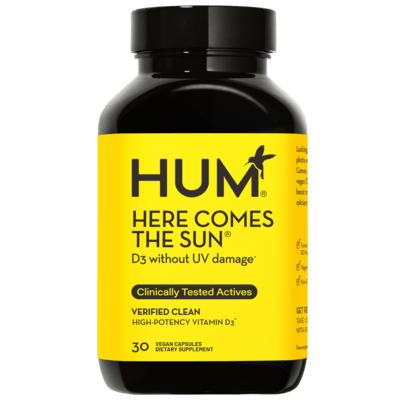Does cold weather make you sick? A doctor explains why you may suddenly feel under the weather when the temperature drops. (Hint: it’s not really the cold weather’s fault.)
“If you don’t put a coat on, you’re going to get sick!” Or, “Button up or you’ll catch a cold!” said your mom a thousand times when you were little. (You probably ignored her, and then if you did catch a cold, she gave you soup and told you she was right and to wear the coat next time.)
Winter is typically sickness season. Certainly, you can get sick at any time (raise your hand if you’ve ever fallen prey to the dreaded summer cold). However, the flu season peaks between December and February, according to the Centers for Disease Control and Prevention (CDC). Similarly, people are more likely to get colds during the winter and spring, they note. But does cold weather make you sick? Not exactly. While it’s true that you may be more likely to get sick in the winter, it’s not necessarily the cold weather that’s the main culprit.
Why Does Cold Weather Make You Sick?

There’s some preliminary evidence from mouse studies that suggest cooler temperatures may dampen your body’s natural virus-fighting defenses, allowing for a cold virus to more rapidly replicate, thus increasing the chances of getting sick, notes research in PNAS in 2015. But, that’s not all that’s going on.
“It’s not that a virus likes the cold, it’s simply more transmissible in cold weather,” says Robert G. Lahita, MD, PhD, professor of medicine at Rutgers New Jersey Medical School, director of the Institute for Autoimmune and Rheumatic Disease at St. Joseph Health and author of Immunity Strong. “All these different viruses thrive in the winter because this is the time when they’re easily spread from one person to the other,” he says.
While there’s definitely a correlation between cold weather and illness spikes, it’s not actually the cooler temperatures that are causing your sickness. So why do people get sick in the winter? There are a few other factors at play.
Cramped Quarters Pass Around Viruses
There are certain factors that make a virus more likely to bounce from person to person and infect them—one being collective closeness. “We’re more clustered together indoors when it’s cold out, and inside the airflow isn’t as significant as it is in the spring or summer,” says Dr. Lahita. You’re not throwing open your windows and getting a cross-flow of air that essentially blows away viral droplets in the air. And when you’re in an enclosed space with others—whether they’re friends and family or strangers waiting in line at the store—you’re more likely to breathe, cough, or sneeze on each other, he says. If someone is sick and coughs, sneezes, or talks around you, the virus can enter your body through your mouth, eyes, or nose and make you sick, says Mayo Clinic. It can also spread when you touch something that’s contaminated and then touch your mouth, eyes, or nose, as well.
Dry Air Brings Down Your Body’s Defenses
If you’ve experienced a nose bleed during winter, know it’s very common. Your nasal passages are significantly drier in cold weather, which works against you for two reasons, says Dr. Lahita. Drier nasal passages cause people to sneeze more, which expels more of any virus they might have into the air. And the combination of cold outside air and heated indoor air creates arid environments that dry out the mucus in your nasal passages (which serves to protect you against pathogens). With defenses down and more viral droplets swirling in the air, you’re more likely to come down with the sniffles and sneezes.
Lack of Vitamin D Lowers Overall Immunity
Along with supporting strong bones, vitamin D plays a role in our immune system’s health. Your skin uses sunlight to make vitamin D, notes the National Library of Medicine. But in the winter, the colder temperatures and shorter days can make that difficult (on top of the fact you’re likely staying inside more often because of the pandemic). The good news? You can also consume vitamin D from certain food sources, such as salmon and trout, UV-exposed mushrooms, fortified dairy and non-dairy products, and ready-to-eat cereal, according to the National Institutes of Health. But the NIH says the majority of people don’t get enough vitamin D from their diets. If you live in a northern climate where you’re getting less sun, there’s a risk you may be deficient, according to Harvard T.H. Chan School of Public Health—which can lead to a weakened immune system. To help bolster your immune defenses, try adding a vitamin D supplement (like HUM Nutrition’s Here Comes The Sun) to your routine.
How to Stay Healthy in the Winter

Seasonal sickness is a real thing: You’re likely to catch two or three colds this year, according to the CDC. Colder temperatures only increase the likelihood of catching a winter cold (and other viruses, like the flu). But there are some lifestyle habits that can help stack the odds in your favor:
Wash Up
“Think of the virus as glitter on everything,” says Dr. Lahita. Glitter spreads everywhere, so it’s best to practice frequent hand washing or sanitizing. Clean your hands after you get home, before eating, and after going to the bathroom. For best results, rinse your hands under warm water, lather your hands with soap and scrub for 20 seconds before rinsing off and drying. Don’t feel like counting? Try singing the happy birthday song twice in your head instead. (Here’s exactly how to wash your hands properly.)
Take a Vitamin D Supplement
If you suspect you may be deficient in vitamin D (whether because you live in a Northern climate or know you don’t fill your diet with food sources of D), get your vitamin D levels checked first, says Dr. Lahita. This can be done with a simple blood test. If supplementation is recommended, HUM Nutrition’s Here Comes the Sun, a vitamin D3 supplement with 2,000 IU, may be a good choice for you.
Get Seven Hours of Sleep
Curling up on the couch binging Netflix sounds tempting in winter, but don’t let it get in the way of a full night’s sleep (which is essential for a zippy immune system). The CDC recommends that adults clock at least seven hours per night. People who snooze less than seven hours per night are more than two times more likely to develop a cold compared to those sleeping more, according to a study. Cutting sleep short dampens the body’s ability to fight off illness.
Move Regularly and Often
During the winter hibernation season, it’s normal to want to stay in rather than bundle up to get outside or head to the gym. Still, Dr. Lahita recommends 30 minutes of daily aerobic exercise to support immunity. Power walk or run in your neighborhood, pedal on a stationary bike, get on a rower, or take a virtual cardio class to get in this movement. The immune system responds profoundly to exercise, notes a review from Appalachian State University researchers. Over the short-term, exercise enhances the circulation of immune cells (like natural killer and T-cells) to buoy your body’s defenses and suppresses inflammation. In the long-run, these cells are better able to detect and seek out pathogens that could make you sick. Plus, exercise is a bona fide stress-buster, and stress has been shown to lower immunity.
Take Care of Your Microbiome
About 70 percent of your immune cells are located in your gut. Eating an anti-inflammatory, fiber-rich diet, managing stress, exercising, sleep, and taking a probiotic (like HUM Nutrition’s Gut Instinct) can all help keep your gut healthy. If possible, you should avoid taking antibiotics to treat a viral infection like the cold or the flu, which can harm your microbiome and open you up to other infections, says Dr. Lahita.
Slow Down
Always being “on” can be detrimental to your health in multiple ways. Research has found that stress can weaken the immune system and make you more susceptible to infections. As such, taking a moment to slow down and relax is crucial for fighting off any cold-weather sickness. Dr. Lahita recommends yoga and meditation. These practices—as well as qi gong or tai chi—calm your brain, and mental and spiritual health regulates your immune system, he says.









